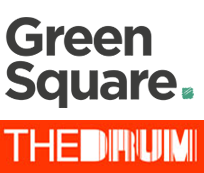17th December 2013
So, farewell then 2013, the year that saw the biggest deal (the $35bn Publicis-Omnicom mega-merger) in the history of the marketing communications industry.
It was a good year for anyone with even a passing interest in mergers and acquisitions, but what of 2014? What does next year hold – and for the big international groups especially?
Perhaps the first thing we can expect is a final decision on whether the ‘Publicom’ deal will go through. Any merger of this size has implications for an industry’s internal competitiveness, and the regulators, both in the US and the EU, will have been poring over the documents
My feeling is that the deal WILL eventually go through, and the world’s largest advertising and marketing group will be created.
This leads us to WPP, whose position as the current largest global marcoms group will be usurped. WPP boss Sir Martin Sorrell has already said that his strategy of making acquisitions in high-growth areas (Asia Pacific especially) and digital will not be derailed, and I believe him. As the wiliest operator on the scene, Sorrell knows better than to be panicked into making a big purchase just to regain the number one slot.
There will inevitably be speculation about a WPP grab of IPG, but I doubt it. I think Sorrell will continue with his aforementioned strategy, snapping up hotshops in growing niches like mobile, social, entertainment marketing and – crucially – data; and continuing to build a presence in China and South-East Asia, Brazil and Latin America, South Africa and ‘Next 11’ nations like Turkey, Vietnam and South Korea.
In fact, I think most of the business done next year won’t be headline-grabbing mega-deals but will be on the margins – smaller deals, but strategically important. This will apply to Publicis-Omnicom as much as to WPP. If for some reason the merger doesn’t go through, I think Publicis will continue with its steady acquisition of digital agencies and Omnicom will have to play catch-up.
This will be difficult for Omnicom – the US network is lacking in ‘big digital’ agencies and, post-LBi and AKQA, there aren’t many of those types of business left to acquire. Publicis, like WPP, has excellent digital capability.
IPG’s position is interesting – it has been relatively quiet on the M&A front this past year, and there must be doubts as to whether it will still be a “standalone” group in 12 months’ time. Unless it makes some large acquisitions itself, it looks vulnerable. An aggressive bid from WPP is a possibility, although unlikely. A similar approach from the Aegis-Dentsu group is slightly more likely, as it would give the Japanese giant a real presence in the mature, but still important, US and European markets.
A third possibility is for the group to be acquired by some sort of private equity firm. At the time of writing, IPG had a market cap of about $7.5bn, and an approach from VC or PE might persuade shareholders to cash in.
IPG has some strong assets and its separate parts may be worth more than the sum of the whole. This could be tempting for many acquirers and Private Equity specialists as an opportunity to acquire the group and then spend time preparing to sell off the various constituents – with the other marcomms groups involved in the cherry-picking.
The most intriguing scenario is a merger between IPG and Havas. This would protect both companies from a hostile takeover, and there are complementary synergies between the two – IPG’s strengths in fast-growing specialisms like sports marketing (Octagon), PR (GolinHarris, Weber Shandwick) and digital (R/GA) as well as its global reach with the three big networks – McCann, DraftFCB and Lowe; and Havas’ strength in media and its more entrepreneurial culture.
This would certainly keep WPP, Dentsu and Publicis-Omnicom on their toes, and probably please clients also. However, we shouldn’t rule out a possible Dentsu acquisition of Havas. Dentsu really put itself on the global map through its acquisition of Aegis, which completed this year. Taking Havas into the fold would cement its new-found positioning as a significant global group.
Aside from that, and away from the global holding groups I see a lot of the big indies and mini-groups – Cello, Chime, Creston, Mission Marketing Group, even Cheil – being busy snapping up smaller or local/regional outfits. With the holding companies busy realising their long-term strategy – and once Publicis-Omnicom has fully understood the areas it now covers, and thus what it can cross off its shopping list – we expect to see many acquirers in 2014 being independent.
Finally – and this is a subject I will return to in a Drum blog early next year – I think we’re going to see a lot of management consultancies coming into the mix. I have already written about how in the increasing quest for ROI driven marketing campaigns (particularly digital) creativity has been pushed down the agenda. This has made it easy for management consultancies to play on what was traditionally the marcomms agencies’ hallowed turf. As data becomes more important, and global brands look for qualitative strategic insights as well as creative executions, the doors have truly opened for the likes of Accenture and Deloitte (the former, in fact, has already been active in this area).
These consultancies represent the biggest threat to established networks because they have the people and systems in place to provide that strategic insight; they don’t have to worry about creative – that can be outsourced to an agency once the brand strategy has been defined. Don’t be surprised if we see more acquisitions by management consultancies in the very near future. Some of the big agencies (Ogilvy among them) I suspect already sense this threat, and have been quietly building up management consultancy-style capabilities within their networks.
The next 12 months are going to be very interesting, with lots of new names entering the arena. Bring it on…
